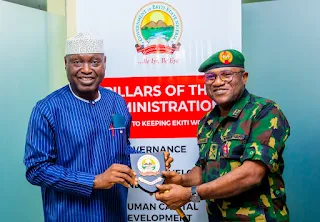Bauchi to eliminate HIV/AIDS before 2030.
The Bauchi State Government has said that it will eliminate the HIV/AIDS scourge in the state before the global 2030 target.
Mr Sani Dambam, the Executive Chairman, Bauchi State Agency for the Control of HIV/Aids, Tuberculosis, Leprosy and Malaria (BACATMA), said this in Bauchi during the commemoration of the 2023 World AIDS Day on Friday.
WHO has set 2030 for the elimination of HIV in the world and the global strategies to achieve the feat hinged on the success of three target areas.
The target areas include identifying 95 per cent of the estimated number of people living with HIV through robust HIV testing services, enrolling 95 per cent of those tested positive on treatment and ensuring that 95 per cent of those on treatment achieve viral load suppression.
Dambam further said that the 2019 National AIDS Impact Indicator Survey showed that Bauchi had 0.4 per cent with an estimated current population of about eight million people.
According to him, the state currently is supposed to have an estimated numbet of 32,000 people living with HIV/AIDS.
He said that 31,252 of the number had been identified, representing 98 per cent coverage.
“Likewise, 30,141 of those who knew their HIV positive status are on treatment, representing 96 per cent coverage.
“However, the state was only able to achieve 93 per cent coverage by having 28,268 of the 30,141 on Anti-Retroviral Therapy that achieved Viral Load Suppression.
“Gladly, the state has gone so far in achieving a significant percentage that signifies hope of eliminating HIV because we have attained the 98 per cent, 96 per cent and 93 per cent achievements, respectively.
“This is encouraging news that Bauchi State has achieved two of the three targets and is close to achieving the last target even much earlier than 2030.
“It is also gratifying to inform you that significant advancement has been made in the development of HIV vaccine and long-acting ART of one to three monthly injection, which will hasten the elimination of HIV,” Dambam said.
The BACATMA boss further said that there were 31 Comprehensive HIV Treatment sites and 883 Prevention of Mother to Child Transmission sites in the state.
He attributed the successes recorded in the agency as a result of the concerted efforts of the state government, stakeholders and political will of Gov. Bala Mohammed.
In an opening remark, the Bauchi Commissioner for Health, Dr Adamu Sabo, lauded BACATMA for contributing immensely towards the elimination of AIDS and other diseases in the state.
The commissioner, represented by the Permanent Secretary of the ministry, Alhaji Ali Babayo, said the the State Government would continue to give the agency the necessary support and enabling environment to operate.
(NAN)






.jpg)


